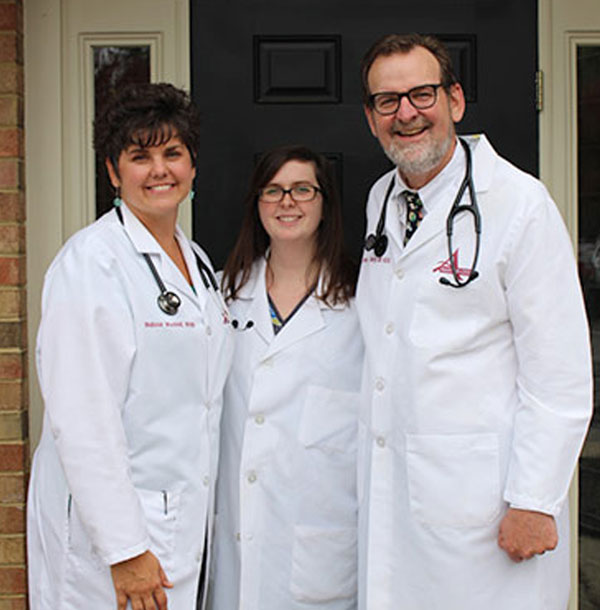What is a cesarean section?
A cesarean section is the delivery of a baby through an incision in the mother’s lower abdomen. This type of delivery is performed when a vaginal delivery is not possible or is unsafe. This procedure is also called a C-section. In the US, about 10 to 15% of all births are by C-section.
When is it used?
A C-section may be performed when there is danger to the mother or baby from one or more of many causes, including:
baby’s head is too large to pass through the birth canal
baby is in the wrong position such as head up (breech presentation)
the uterus is not contracting correctly
the placenta is positioned over the cervix, which opens into the birth canal (placenta previa)
fetal distress
an outbreak of herpes in the genital area
if a patient has had a previous cesarean section

How do I prepare for a cesarean section?
Do not eat or drink anything after midnight before your scheduled cesarean section. Plan to be in the hospital for 2-3 days after delivery. You will not be able to drive for 2-3 weeks and will need to make arrangements. Allow for time to rest and try to find other people to help you with your day-to-day duties.
What happens during the procedure?
You are given a regional or general anesthetic. A regional anesthetic, such as an epidural or spinal numbs part of your body while you remain awake. It should keep you from feeling pain during the operation. A general anesthetic relaxes your muscles, puts you to sleep, and prevents you from feeling pain. Dr. Hardy then makes a cut in the lower part of the abdomen (bikini area) and into the lower part of the uterus to remove the baby. Dr. Hardy will deliver the baby, placenta, and birth sac and then proceed to sew the uterus and abdomen closed. The skin is closed with steristrips that peel off in about 2 weeks or staples, which you will have removed in the office ½ week after discharge.
What happens after the procedure?
Your abdomen will be sore. You may need help with positioning your baby comfortably for feeding. Walking and standing will be painful for the first few days. You will need to avoid heavy lifting for 6 weeks. After 6 weeks you will need to come to the office for a postpartum appointment at which time we will discuss your ability to begin an exercise program to regain abdominal muscle tone.
What are the benefits of this procedure?
C-sections can save the lives of newborns and their mothers or prevent the potential complications of a delayed vaginal birth. For example, baby’s that are in distress begin to have low heart rates and can be delivered right away with good outcomes. Another benefit is the ability to have your tubes tied after the delivery of the baby, which allows you to avoid another surgery later.
What are the risks associated with this procedure?
No surgery is free of risks. Some risks from a cesarean section are:
excessive bleeding or surgical wound infection
low iron levels in the blood after delivery
endomyometritis (inflammation of the lining and muscle of the uterus)
excessive scar formation
complications of anesthesia
blood clots in the leg which can travel to the lung
in rare situations, there can be injury to the bladder, intestines, or other structures encountered during the surgery
When should I call the office?
If you have just had a C-section, call the office right away if:
You develop a fever over 100°F (37.8°C).
You have drainage from your incision, or the incision separates.
You have heavy bleeding from the vagina.
You become dizzy or faint.
You have leg pain, especially if your leg is also swollen and red.
You have nausea and vomiting.
You have chest pain.
You become short of breath.

